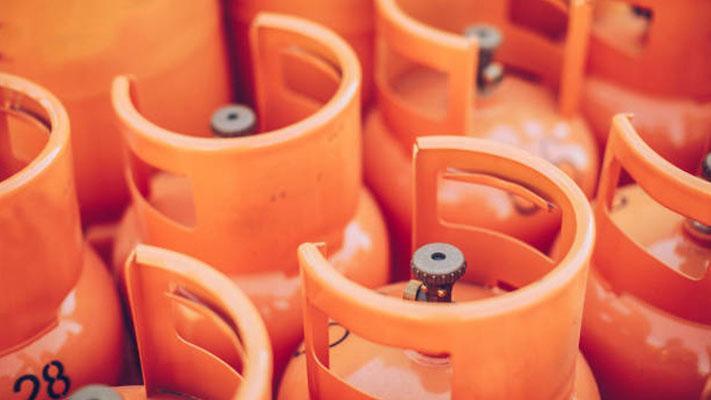…One kg reaches N3000 in Lagos, Abuja
…Experts point at FX crunch, union strike, transport costs, inadequate storage capacity
Nigerian households are facing a fresh wave of hardship as the price of liquefied petroleum gas (LPG), commonly known as cooking gas, surges to record highs following supply disruptions that have worsened the country’s energy affordability crisis.
Across major cities, consumers now pay between N1,500 and N3,000 per kilogramme (kg), up from the average of N1,200 just weeks ago. In Lagos, Abuja, and Ogun, many outlets have run out of stock, while others still in operation sell at rates far above official prices.
Several families have resorted to using kerosene stoves to cope with the hardship, while others have turned to charcoal, BusinessDay gathered.
Read also: Cooking gas prices hit N3200/kg despite end of Dangote, PENGASSAN strike
Households feel the heat
The sudden jump in prices has left families struggling to adjust their daily budgets.
“My mum sent me a text yesterday, saying her friend bought gas for N2,500 per kg, while we had just bought ours for N2,000,” said Stella Chibuike, a resident of Ikorodu, Lagos.
“Our usual vendor later called to say the price had dropped to N1,500. It’s still higher than the N1,300 we used to buy, but at least it’s better than before.”
In Sangotedo, Doris Akintunde, a resident, said she paid N1,500 per kg and was ‘grateful’ it hadn’t hit N2,000. “Normally, I buy per kg of gas for around N1,000 or N1,300, but with this hike, I was expecting worse,” she said.
Also, restaurants and small food businesses have not been spared.
“I got my cooking gas for N1,500 per kg, but it didn’t last,” said Oluchi Phina, who runs a restaurant in Iganmu. “My cylinder was filled with air, I was cheated. This has become common at some outlets.”
Kubwa, Abuja-based Muhammad Turaki, said he bought gas at N2000 per kg, noting that the price hike has squeezed his family income.
“I paid N25,000 for 12.5kg of gas at the weekend. I spent almost double the price I used to pay for it. As a result, I didn’t buy petrol to power my generator,” he said.
These accounts illustrate how price volatility and under-dispensing are exacerbating the pain of consumers already struggling with inflation.
Prices double nationwide
Findings by BusinessDay show that the price of a 12.5kg cylinder, which sold for between N14,000 and N17,000 in September, now costs up to N25,000 in some parts of Lagos, Ogun and the Federal Capital Territory (FCT).
Consumers have been forced to queue for hours at filling plants, with some travelling long distances to find gas. In Abuja, a resident of Nyanya said she paid N20,000 for a 12.5kg refill after visiting four stations.
“I’ve never seen a cooking gas queue in my entire life — this is the first time,” Moris Monye, a businessman, said on X (formerly Twitter).
Another X user said, “A 20 kg used to go for 4,500 as ‘recent’ as 2021. And things were already terrible then. Many Nigerians are strong.”
Industrial strike and logistics snags
The Nigerian National Petroleum Company (NNPC) Limited attributed the crisis to the recent strike by members of the Petroleum and Natural Gas Senior Staff Association of Nigeria (PENGASSAN), which disrupted operations at key terminals, including the Dangote Refinery, a major LPG supplier.
According to Bayo Ojulari, NNPC’s CEO, the industrial action delayed gas loading and transportation for several days, creating what he described as “temporary but artificial scarcity.”
“Once the strike was suspended, normal supply began resuming,” Ojulari told Channels Television on Monday.
However, marketers say the challenges go beyond labour unrest. They point to foreign exchange (FX) volatility, high transport costs, and inadequate storage capacity as structural bottlenecks that continue to distort pricing.
Read also: Fuel queues re-emerge in Lagos despite Dangote, PENGASSAN dispute settlement
Dangote’s intervention
According to reports, the Dangote Petroleum Refinery, which produces about 2,000 tonnes of LPG daily, has cut its ex-depot price from N810 to N760 per kilogramme to ease market pressure and discourage profiteering.
The refinery’s management warned that it may resort to direct sales to consumers if middlemen continue to inflate prices, according to multiple reports. The move is expected to stabilise supply in the coming days, though retail prices may take longer to reflect the reduction.

